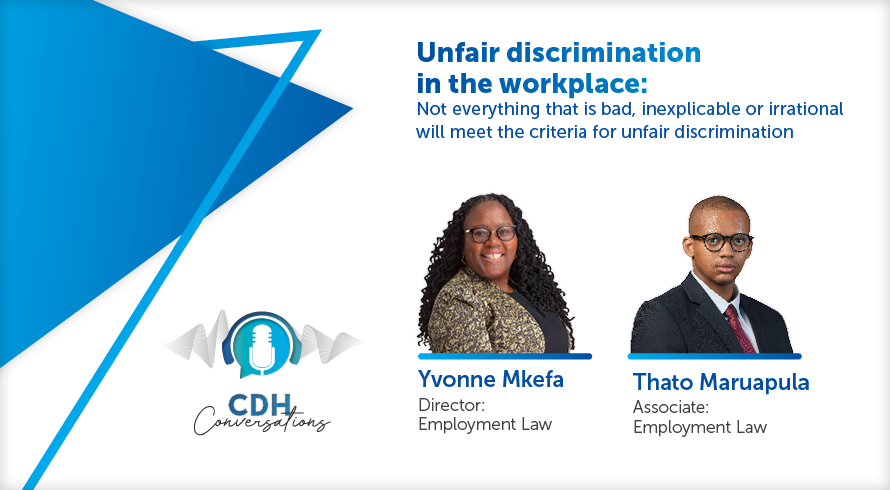No longer most favoured?
At a glance
- The Dutch Supreme Court passed a judgment in favor of the taxpayer, interpreting the "most favored nation" (MFN) clause in the double taxation agreement between South Africa and the Netherlands. The judgment concluded that if any other double tax agreement entered into by South Africa provided a more favorable dividends withholding tax rate than the Dutch agreement, that more favorable rate must automatically apply.
- The South African Revenue Service (SARS) did not appeal the Tax Court judgment but has taken steps to close the loophole and prevent taxpayers from exploiting the MFN clause. SARS entered into a protocol to the Kuwait double tax agreement, imposing a dividend withholding tax of 5% for shareholders owning at least 10% of shares in a South African company. The protocol is yet to be ratified and its proposed retrospective application from 2012 has raised concerns.
- The ratification of the Kuwait protocol by South Africa has been delayed, and it remains uncertain when formal ratification will take place. If ratified, it could lead to increased tax litigation on the issue of retrospective application of the dividend withholding tax.
The Judgment considered the interpretation of the “most favoured nation” (MFN) clause in the double taxation agreement between South Africa and the Netherlands, dated 10 October 2005, as amended by the protocol dated 8 July 2008 (Dutch DTA). In finding in favour of the taxpayer, the judgment concluded that to the extent that any other double tax agreement (DTA) entered into by South Africa with any other country provided a more favourable dividends withholding tax rate than the Dutch DTA, that more favourable rate must automatically apply. The judgment in the Cape Town Tax Court case of ITC1925 82 SATC 144 also supported this interpretation from a South African perspective.
Interestingly, the South African Revenue Service (SARS) never appealed the Tax Court judgment, however, SARS together with Government, have taken steps to close this loophole and prevent taxpayers from exploiting the MFN clause. In order to understand the significance of the Judgment and the proposals made by SARS, it is necessary to understand the mechanics of the MFN clause and how SARS has sought to negate this tax optimisation tool.
The MFN clause contained in the Dutch DTA contemplated that the automatic application of a more favourable rate should apply in respect of DTAs concluded after the Dutch DTA came into effect. However, the DTA concluded with Sweden on 25 December 1995 (as amended by the protocol on 18 March 2012) (Sweden DTA) contained wording which extended its own MFN clause to retrospectively concluded DTAs.
The result was that taxpayers could apply the dividends withholding tax rate of 0% which was available in the DTA concluded between South African and Kuwait on 25 April 2006 (Kuwait DTA). Broadly speaking, if either the Dutch DTA or the Sweden DTA were utilised by a South African resident, then the most favourable dividends withholding tax rate contained in the Kuwait DTA could be applied.
SARS however, took a significant step to effectively close this loophole by entering into a protocol to the Kuwait DTA on 21 April 2021 (Kuwait Protocol). The Kuwait Protocol now imposes a dividend withholding tax of 5% if a shareholder owns at least 10% of the shares in the South African company. It is worth noting that the Kuwait Protocol has still not been ratified and is therefore not yet in effect. However, some of the proposed wording in the Kuwait Protocol has raised concerns.
Article 2(2) of the protocol (which is not accessible via SARS but rather through the Parliamentary Monitoring Group) provides that “the provisions of the Protocol shall thereupon have effect beginning on the date on which a system of taxation at shareholder level of dividends declared enters into force in South Africa”. This seems to imply that SARS intends for the Kuwait Protocol to apply retrospectively from the introduction of dividends withholding tax in South Africa in 2012. If this is the case, there could be a sharp increase in tax litigation on this issue once the Kuwait Protocol is ratified. Interestingly, the ratification of the Kuwait Protocol by South Africa was due to take place on 1 September 2021, however, there have been additional delays and it remains to be seen when formal ratification in both countries will take place.
The information and material published on this website is provided for general purposes only and does not constitute legal advice. We make every effort to ensure that the content is updated regularly and to offer the most current and accurate information. Please consult one of our lawyers on any specific legal problem or matter. We accept no responsibility for any loss or damage, whether direct or consequential, which may arise from reliance on the information contained in these pages. Please refer to our full terms and conditions. Copyright © 2026 Cliffe Dekker Hofmeyr. All rights reserved. For permission to reproduce an article or publication, please contact us cliffedekkerhofmeyr@cdhlegal.com.
Subscribe
We support our clients’ strategic and operational needs by offering innovative, integrated and high quality thought leadership. To stay up to date on the latest legal developments that may potentially impact your business, subscribe to our alerts, seminar and webinar invitations.
Subscribe




